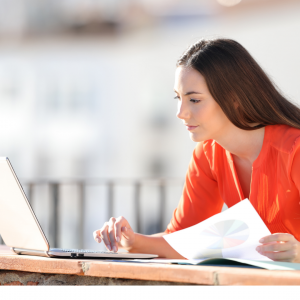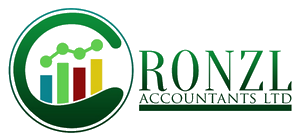Self-assessment in the UK is a very important regime where HMRC allows taxpayers to self administer their tax due to them.
However, Knowing when to register and be under the self-assessment regime in the UK is an important question that is asked by UK residents.
This might be due to a change in circumstance or when they have been advised by family or friends to do register under the tax system
The HMRC uses the self-assessment in the UK to administer and collect taxes from taxpayers in the UK.
Even though all of the tax the majority of UK taxpayers’ tax is collected at the source, however, some taxpayers under this system are required to administer their tax by themselves.
It’s essential for these set of individuals to rightfully administer their tax well and could receive a penalty when applied wrongly or not on time.
An individual without prior training in accounting and tax matters is still expected to pay the right amount of tax after calculating and when reasonable care has not been taken will receive a penalty.
They expect individuals to get professional support if required rather than preparing and submitting inaccurate accounts on which the tax due is applied.

When you should register under Self-assessment in the UK.
You are required to register for Self- assesment in the UK when you fall within the regime.
You fall within the regime when the following applies to you:
- Trading or providing professional services in the UK.
- Directors and shareholders that receive other income from the company.
- Landlords of rental properties from land and properties.
- Earned capital gains from the disposal
- Income earning from abroad.
- Earning over £100,000 in the tax year.
- Taxpayers that receive income over £50,000 and receive child benefit
- Individuals that are owing HMRC money through PAYE
- Ministers of Religion
- Received earnings from trust and settlement.
In this blog, We will explore some of the most common reasons individuals fall within the Self-assessment regime in the UK.

Trading or providing professional services in the UK
Some individuals run their businesses through trade. Some also provide professional services.
They are in charge of the day-to-day running.
Examples of such individuals are plumbers, electricians builders, accountants or lawyers e.t.c
They receive income from the customers in exchange for the items and services.
Unlike employed individuals, their profit from such income is not taxed at the source.
The main reason is that the amount received from such clients may not be totally taxable.
Under the Self- assessment in the UK,the HMRC allows the trader to deduct the cost related to making that particular income from such customers.
The difference between the amount received and expenses is what is taxable by the revenue.
Just like employed individuals, they are allowed tax fee amount in this income and the amount for the tax year 2022/23 is £12,570

An illustration of income taxable under Self-assessment in the UK
Ned was paid £60,000 for the tax year 2022/23 for providing plumbing services.
As he has recieved this income un taxed,he will be under the Self-assessment in the UK.
He purchased some material used for the work done from B&Q for £27,000
He paid Jim, a contractor that works with him £10,000 for the work done.
Other expenses that include telephone, accountancy fees, travel, and training sum up to £7,800
Therefore his net profit, which is taxable will be £15,200
However, Ed would only pay tax on £15,200-12,570 =£2,430, after deduction of his personal allowance if applicable or available.
It is also possible to be employed and self-employed under self assesment in the UK.
Let’s say Ned was also employed at Homebase too, he would have to declare both incomes from his plumbing job and home base.
This will be declared when submitting their self-assessment retuns.
In these cases, it’s most likely that he won’t be allowed to deduct the personal allowance from his income because every taxpayer is only allowed one tax code.
 Another point that needs to be considered by individuals such as Ned is the national insurance paid by self-employed individuals like him.
Another point that needs to be considered by individuals such as Ned is the national insurance paid by self-employed individuals like him.
The national insurance paid by sole traders is different from that employed by individuals.
Individuals that are classed are self-employed pay two different national insurance as shown.
Class 2 which is a flat rate paid by the day by sole traders
Class 4 is based on the profit made above the threshold for the tax year.
For the tax year 2022/22, the threshold for national insurance is £6,725, this is also referred to as a small profit threshold.
Please note that sole traders would also pay Class 2 national insurance when they go over this threshold.
All these taxes are paid through the self-assessment in the UK.
Conclusion of Self -assessment in the UK
At Ronzls accountant, we have had a lot of fantastic feedback from businesses and individuals with compliance issues in the UK, Kindly contact us if you require our support.
If you would like to read more about self-assessment in the UK, kindly click
